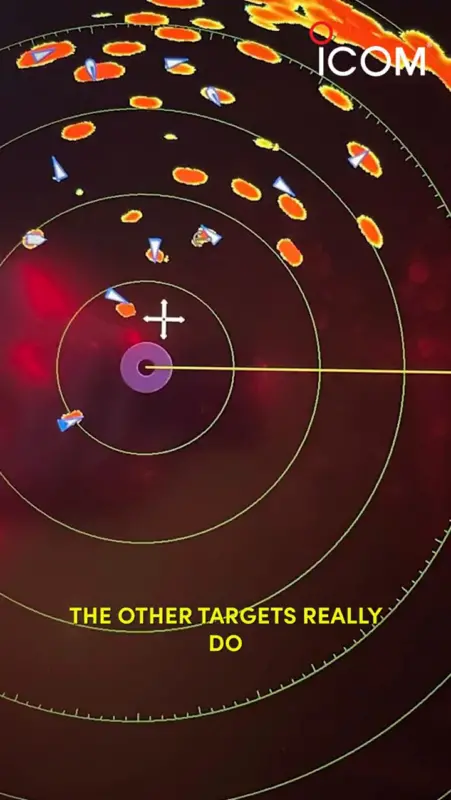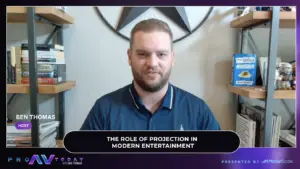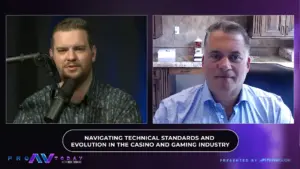Why Audio Engineers Need to Be Network Engineers, Too, with Matt Dietzler of Alford Media
The evolution of the AV industry has been fueled by technological advances that have garnered much debate through the years. While analog systems have a long and rich history of producing sound resulting in legendary gold and platinum music, this technology can require a whole studio full of equipment. In the ‘90’s, digital development rapidly revamped the boundaries of analog limitations, providing a cheaper (and eventually comparable) method of producing sound that continues to evolve through today. This evolution is making its way into the live event scene, too, changing the job description for the professionals involved.
Today, Matt Dietzler, Operations Manager of Alford Media, joined the MarketScale Pro AV podcast. While Alford Media has taken part in two other of our podcasts, giving us a bigger picture of the industry, including holographic technology and lighting design, our discussion with Matt brought us back to one of the key components of AV—the “A”, the Audio. From his band-forming aspirations listening to Green Day back in 9th grade that inspired a love of the studio, through today, Matt has witnessed a major transformation in the audio world. On our podcast, Matt explains in depth the migration from analog to digital format, allowing for an audio system that runs entirely through Cat5 and fiber, the ability to convert microphones into a network infrastructure, and the expertise necessary to run these systems.
HIGHLIGHTS FROM THE EPISODE
Daniel Litwin: So with this digital transformation of audio networks, obviously it’s been a long process and it isn’t something that’s particularly new, but in the live space I think we’ve seen more recent updates.
Matt Dietzler: Yeah.
DL: So how has this affected those professionals in the AV space and how have they had to train themselves to become both audio engineers and now network engineers? It’s like two professions in one.
MD: Well, I honestly wish someone would have told me that when I was 19 first getting into this business because I would have taken some network classes in college and I think had we known it would have been offered as an elective, which would have been great, because just basic networking, you know, learning what different IP addresses do, learning what the different subnet addresses can have you talk to, even the gateway address, just learning what each of those things are and some of them might still need to study because I’m like, “I know how to make the IP of my computer to talk the IP of the network which I need to get into and communicate with everything.” But if something goes down, sometimes I’m not the most tech savvy guy.
DL: Right.
MD: Now I know people that I can call at any given moment they can walk me through it, and thankfully over the years, I had to call them less, but a lot of the guys that noticed the industry trend right off the bat started doing the research. They started learning, they started going to the tradeshows, they started communicating and talking with everyone they could get in the room with. The other thing too is there’s brands that have popped up that are making things AB specific now for network infrastructures. The biggest one is Luminex. They make a network switch that simplifies the idea of VLANing, LANing local area network, VLANing, you can separate those networks so that ports, only specific ports talk to each other but everything still on the same network, which is what we’ve done at Alford. All of our audio systems network together down one fiber cable, but we can split that out so the network traffic is better managed.
DL: Right.
MD: And then we use ubiquity switches to talk to everything wirelessly which is incredible. So our setup, while it’s gotten more complicated, we’ve had to have some training on it. Once we’ve perfected it, it’s almost plug and play, and not a lot of guys know that. They struggle with the idea of what it took it to get there and I was part of that process where we were plugging stuff in and going, “This just doesn’t work.” And then we got it worked to the point where we were on the phone with Luminex and they gave us a specific code we could write into the switch to make it do something we need it to do. It was a pre-firmware upgrade that we wanted done. And once we got it done, we were like, “Bam! This is the coolest thing we’ve ever produced.” But the problem was is as soon as you restarted the switch, you lost that code and you got to recode it. So if you had restarted the switch during the show, you could crash your network and you’re like, “I don’t want to do that.”
DL: Yeah. I think once the transformation happens, the professionals see the value, but I think you’ve said it best yourself is that it’s within the transition that you still see some hesitance. It’s like if people are used to using the analog systems, you know, maybe that transition to digital just feels like more effort than it’s worth.
MD: Yeah, absolutely. We’ve actually had several engineers that we work with a ton over the last few years that kind of fall off our radar because they were unable to keep up with the changing technology. We basically one hundred percent switched over to digital and everything except for our small format stuff, which you’re going to see small format on analog for the rest of the life of what we do.
DL: Right.
MD: It’s just it works, it’s easy, and that you can train anybody to do it. So if you’re doing a small breakout room and there’s a person designated by the company you’re working with that’s supposed to run that room, but they don’t know anything about AV, you can go, “Hey, all you have to do is just label it.” And you go, “Hey, this fader here, you push that to zero, and that’s your mic.”
DL: Right.
MD: And if you need to play something back, the next one over says iPod and then say, “If you need to play something like music, you push that to zero or minus ten so it’s not as loud,” and then you turn on. So there’s a much easier…
DL: It’s definitely more intuitive, I think, like the analog, but…
MD: Yeah. And the other thing too is Dante when it first came out was not reliable. Everyone was like, “This is really cool, but you need to fix your issues before you buy into it.”
DL: Right. It was like a beta.
MD: Yeah. They were like, “This is cool. We’re going to be able to plug everything in via Cat5 and then everything is just going to make noise.” And you’re like, “Great, it’s awesome.” But it doesn’t work and here’s why it doesn’t work because, you know, engineers can design stuff all day long, but the users are the ones that are going to tell you what needs to be done to it. So even Alford was hesitant to start to go, “We were not sure about this one hundred percent digital thing. It doesn’t really work. It’s crashing a bunch. Some of our guys can’t learn on it.” And you know that’s where you see all these trainings pop up. I mean DiGiCo, like I mentioned earlier, they do trainings all the time. Sometimes it’s in your city, sometimes it’s not, and you need to fly somewhere to learn how to use it, you got to fly somewhere to learn how to use it.
For the latest news, videos, and podcasts in the Pro AV Industry, be sure to subscribe to our industry publication. A new episode of the Pro AV Show drops every Thursday.
Follow us on social media for the latest updates in B2B!
Twitter – @ProAVMKSL
Facebook – facebook.com/marketscale
LinkedIn – linkedin.com/company/marketscale







